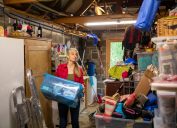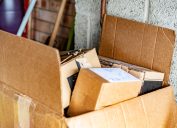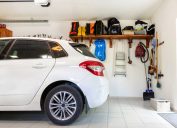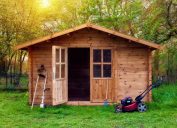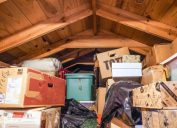13 Worst Things to Store in Your Garage
Experts suggest finding somewhere else to put this stuff.

Keeping your home clean and well-organized means having a designated spot for every item you own—or at least, most of them. But when we're struggling to find the perfect place for something, we tend to turn to our garage. From seasonal decorations to garden supplies, this is the space most of us use to store all the random stuff we don't need or have room for in the house. But not everything is suited for your garage—in fact, experts warn that what may seem like a practical storage solution could actually be harmful. Read on to discover the 13 worst things to store in your garage.
RELATED: 23 Brilliant Garage Storage Ideas That Will Free Up So Much Space.
Why should you avoid storing certain things in your garage?
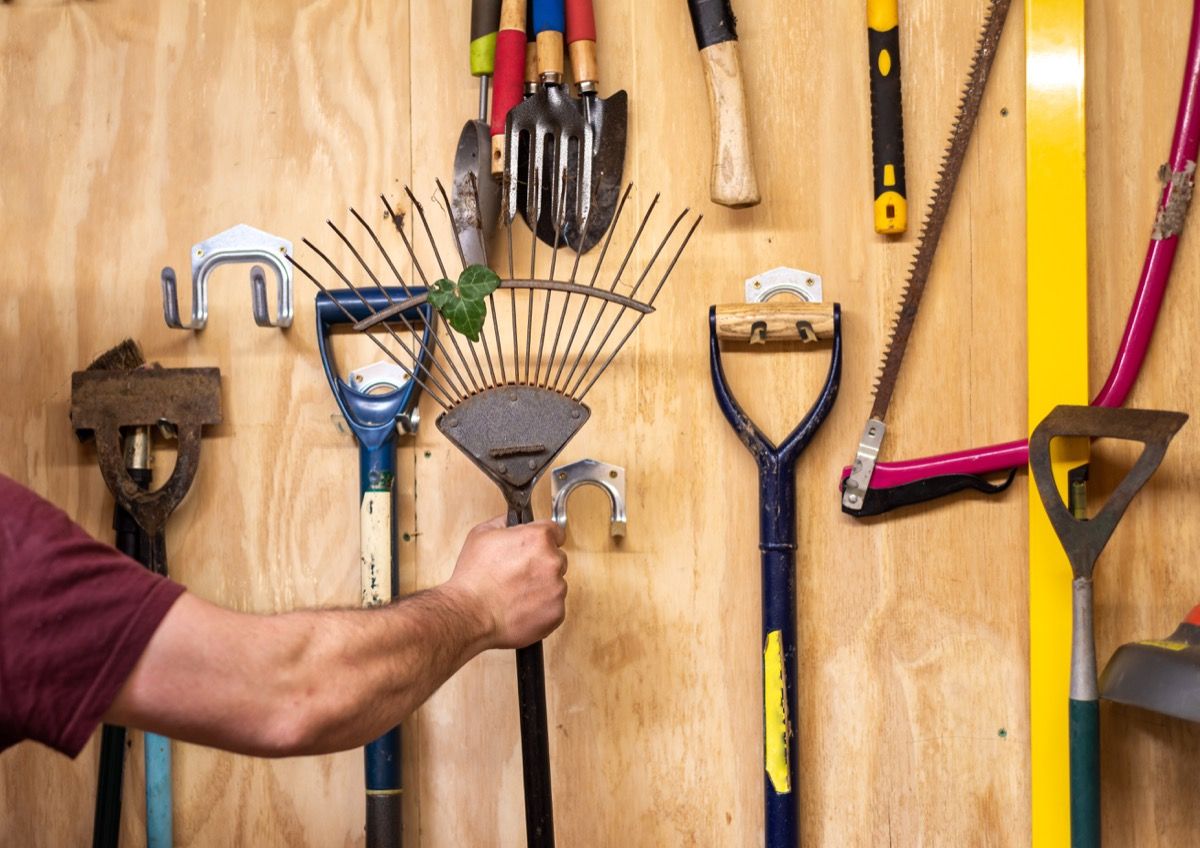
"There are a lot of household items that homeowners unknowingly store in their garages without understanding that the environment in their garage may be harmful," says Aaron Cash, managing partner and president of Garage Living Franchise Systems.
While it may be tempting to put anything in your garage that you want to keep but don't have space for elsewhere, it's best to only use this as a storage spot for items that are "designed for harder conditions and won't be affected by the garage's environment," according to Alex Johnson, automotive expert and CEO of Man and Van Star.
"Always assess the sensitivity of items to temperature, humidity, and potential physical damage before storing them in a garage," Christopher Ramsey, founder of Virtual Moving Technologies, advises.
RELATED: What Happens If You Keep Boxes in Your Garage, Exterminators Say.
1
Books and important paperwork

Books and important paperwork should never be stored in the garage.
"The dampness and fluctuations in temperature can permanently damage the paper," explains Raquel Kehler, interior designer at RoomCrush.
Papers can get damp, leading to mold and disintegration. Aaron Traub, owner and lead organizer at My Professional Organizer Dallas, adds that essential documents may even become unreadable.
Chantelle Hartman Malarkey, interior designer and hosting aesthetic expert, also notes that photos can fade in the garage—and like paper, they could get moldy or discolored.
If you don't have suitable indoor shelving for such items, Kehler suggests storing your books in boxes in a temperature-stable environment, such as a storage room or closet inside your home.
2
Furniture
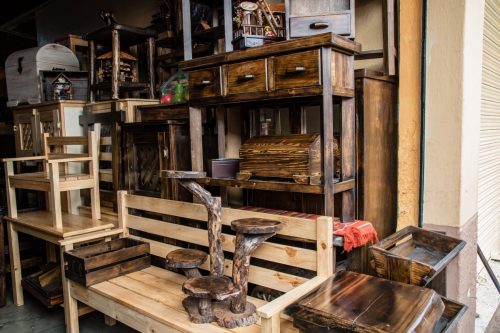
Unless it's a special case where your garage is climate-controlled, it's best to avoid leaving furniture there. Wooden furniture, specifically, should always stay indoors.
"Fluctuations in temperature and humidity can be particularly harmful to wood, causing swelling, warping, and cracking," warns Willow Wright, owner of the antique and vintage store Urban Redeux. "Plus, these issues can lead to permanent damage, negatively impacting the furniture's appearance and structural integrity."
3
Clothing and bedding
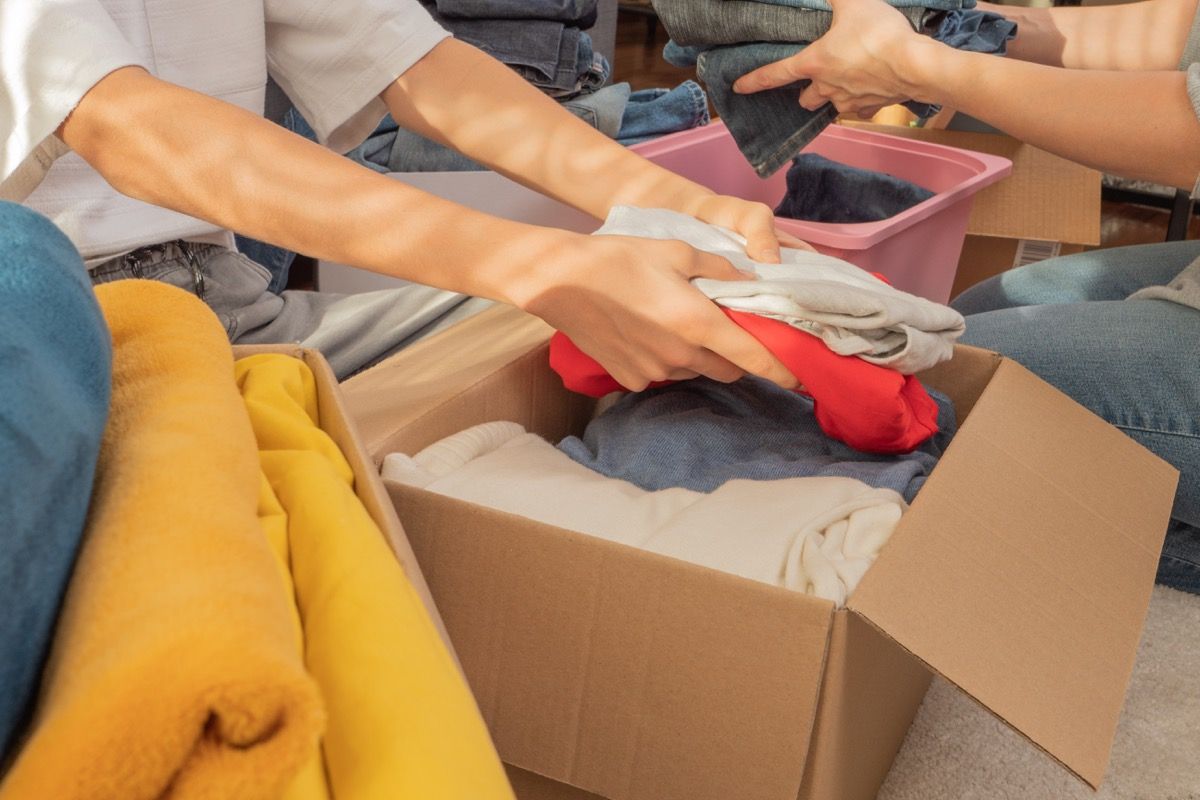
Similarly, the fabric for most clothing and bedding can be "damaged by humidity and temperature changes," Cash cautions.
Not only that, but these items can also attract mold and mildew when stored in the garage, according to Ashley La Fond, founder of the home organization company Of Space & Mind.
"We recommend storing clothing in a cedar closet or humidity controlled space instead," Fond says.
4
Propane tanks
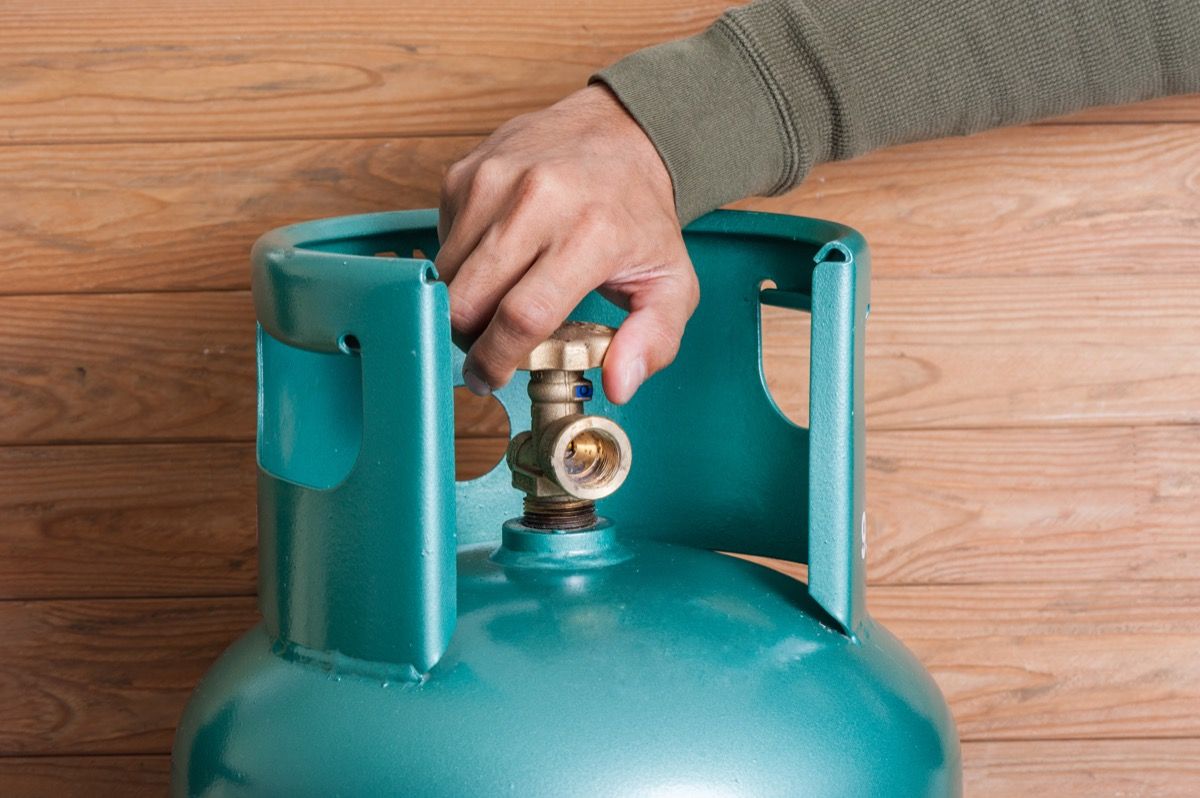
Storing gasoline or propane tanks in your garage can result in spontaneous combustions, Sebastian Jania, owner of Ontario Property Buyers, warns. Any sparks—whether they come from your car, a lighter, or something else—can result in significant fire damage.
Locking these materials up somewhere else is ideal, Cash confirms. A shed with adequate venting is the right choice for any extra tanks.
RELATED: 5 Hazardous Items Hiding in Your Garage, According to Experts.
5
Paint
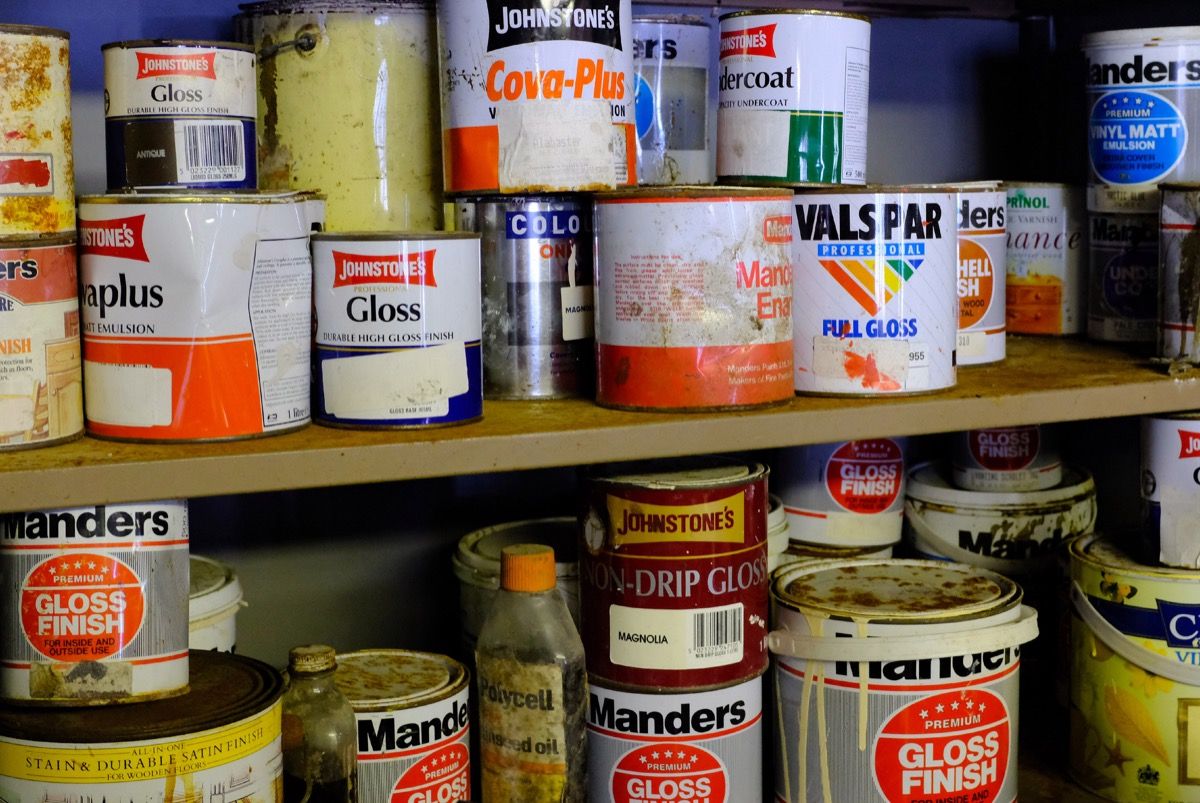
Some paint is also flammable. So for the same reasons as propane tanks, it's dangerous to keep it in the garage.
"Taking old hazardous materials like paint to your local recycling or disposal depot will remove potential poisoning and fire hazards from your garage," Cash advises.
Temperatures in garages fluctuate a lot, which can alter the paint formulas and affect its quality as well, Kelly notes. You should keep it in a room that has a consistent temperature and no direct sunlight.
6
Rugs or carpets
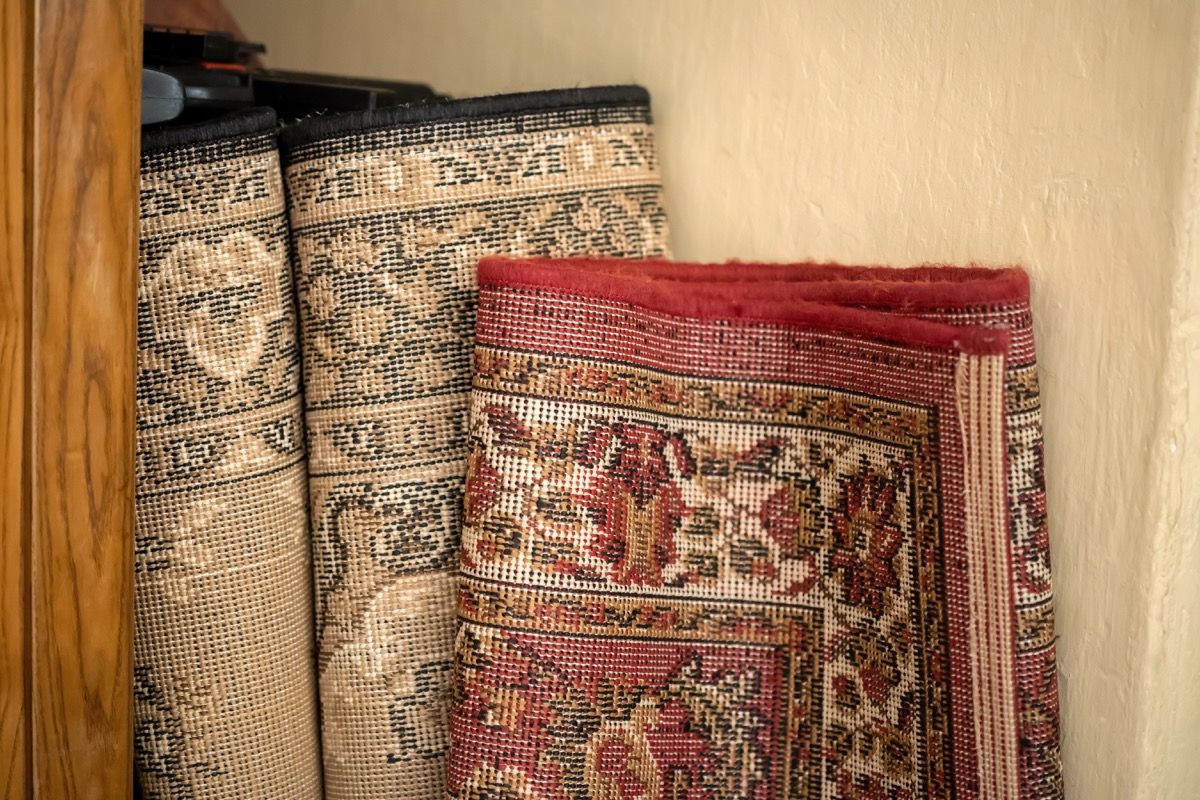
When people renovate their homes, they often roll up rugs or extra carpeting and move them to the garage for the time being. But while they might be out of the way, storing them in there is a bad idea.
Floss Kelly, co-founder of the renovation company TileCloud, says rugs can easily become cozy homes for insects and mice—especially when rolled up. In addition to pests, the carpet fibers absorb moisture and odor, so it's likely they'll be ruined by the time you bring them back inside.
Instead, Kelly advises putting them in a cool, well-ventilated space like a closet, or using a rug storage bag.
7
Food or compost
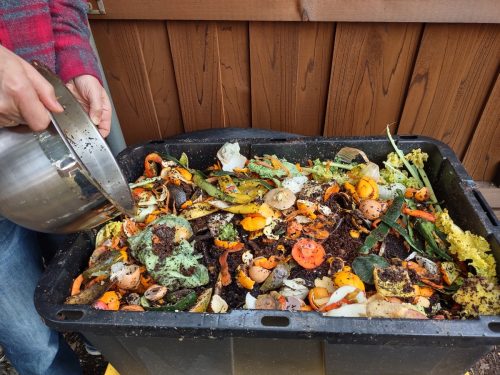
Speaking of critters, nothing brings them in quite like food. While food stored safely in an outdoor freezer might be fine, compost or food scraps should not be left out in the open in your garage.
"Compost or food is going to attract various rodents, especially as it continues to rot and break down," Jania cautions. "It would be recommended to have an outdoor compost bin that can safely be stored in more of a garden area rather than a garage to keep rodents where they belong."
Food safety also comes into play, as certain items will spoil in extreme heat or cold.
"You don't want to risk getting sick on bad food," Malarkey says.
RELATED: 10 Cleaning Habits That Attract Mice to Your Home.
8
Tires
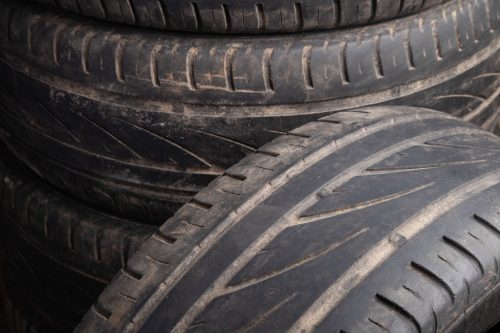
Storing old tires in your garage can also create a problem with rodents and bugs, according to Kelly Salas, property services expert and founder of Sierra Vista Maintenance.
"Over time, they can degrade, and stagnant air inside a tire can become a breeding ground for pests," Salas says. "It's better to store them in a dedicated tire rack, preferably in a dry, cool place where temperature fluctuations are minimal."
9
Electronic devices

It's a bad idea to keep any electronics you're not currently using in your garage, especially if you plan on ever using them again.
"The humidity and outdoor temperatures can cause these devices to overheat, corrode and deteriorate," explains Dan Mock, vice president of operations for the electric company Mister Sparky. "The unpredictable weather can also impact the functionality of electronics, like TVs, gaming consoles, and computers, causing them to malfunction when you turn them back on."
In fact, Brian Mollo, CEO of Trusted House Buyers, tells Best Life that he once had a tenant leave an iPad and a laptop in the garage of their rental home, and both "became unusable within a couple of months because of the humidity in the garage."
"The lack of climate control in a garage makes storing a lot of things in them a bad idea but electronic devices aren't always stuff you think of when it comes to damage from moisture," he notes.
10
DVDs

Many homeowners turn to the garage when they need a place to keep old DVDs, hard drives, or VHS tapes that they don't have room for inside their home anymore.
"This is a big mistake," warns Jerry Dilk, senior consultant of information governance at Data Storage Centers in Phoenix, Arizona. "Physical media should never be stored in your garage."
This is because hot temperatures and high moisture levels inside you garage can "deteriorate the interior of your physical media," according to Dilk.
"You wouldn't want those old videos you took of your kids to be gone forever because you stuck them in your hot garage," he says.
11
Pool tables
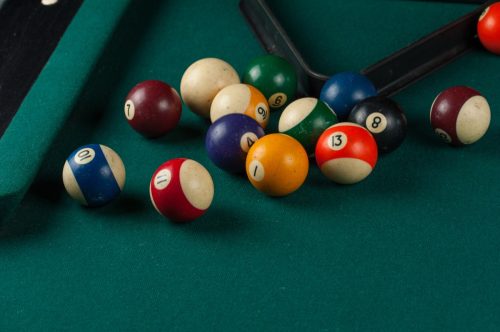
People often ask Shawn Cleve, general manager at Home Billiards Sales, if they can store or keep a pool table in their garage. But "unless the pool table is designed for outdoor use or the garage is climate-controlled, it's a bad idea," he answers.
"Most pool tables are made of climate-sensitive materials like wood and felt. As the air in the room heats, cools, or changes humidity, those materials will change in size, damaging the table," Cleve further explains.
RELATED: 8 Pieces of Old Junk in Your Garage That Could Be Worth Thousands.
12
Lightbulbs
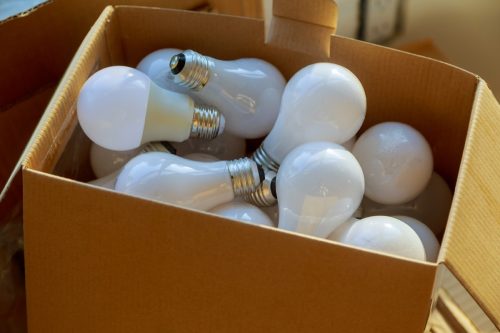
Most of us wouldn't think twice about leaving extra lightbulbs in our garage until we need them. But "heat can actually shorten lifespan of bulbs," according to Fond.
"We recommend storing them in a cool spot, like a basement or utility closet, instead," she says.
13
Power tools
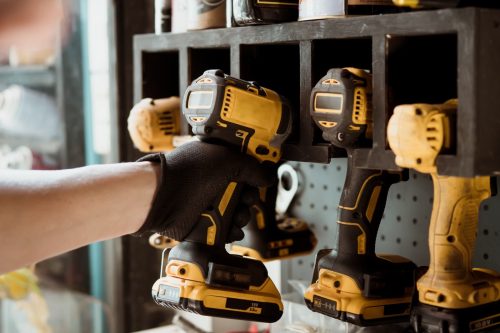
The one thing you can pretty much guarantee you'll find stored in any garage is tools. But did you know that some experts actually recommend against keeping battery-operated power tools there?
"Modern power tool batteries are usually a lithium ion stock that is dramatically affected by the temperature," Al Ruggie, marketing director at ASAP Restoration LLC, explains. "When the battery gets too hot it just doesn't function properly, or sometimes at all."
Even if you don't live in a warmer climate area, this is still something you'll want to be mindful of.
"Similarly with environments that get cold in the winter, it affects the battery life dramatically. Cold weather, and especially freezing temperatures cuts down on the lifespan and longevity of a battery significantly," Ruggie adds.
